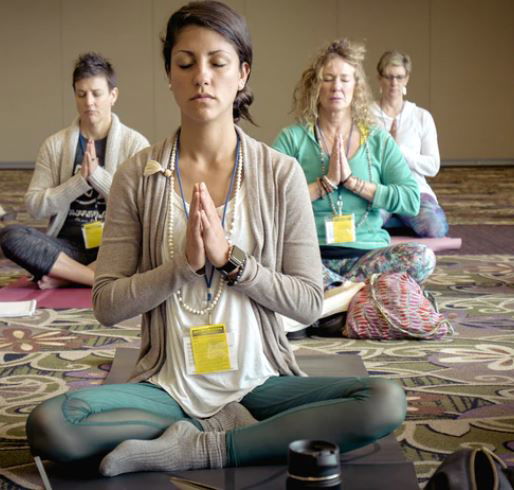Hindu Faith (Hindutva)


The three key elements of any society, organization, person or family, in Hindi language, are known as ‘Aastha’, ‘Avastha’, ‘Vyavastha’. Aastha is faith. Avastha is condition. Vyavastha is organizational system or practices.
It is easy to understand these three terms in the modern corporate context. For every corporation, we talk of its mission and values, its financial and operational condition, and its organization and systems.
If financial and operational condition of a corporation are disturbed, those can be rectified. If Organization and systems of the corporation are disturbed, those can be rectified. But if the mission and values of a corporation are disturbed, the organization is lost. That is the power of the mission and values or call it the faith.
Hindu ‘Aastha’
Hindus over centuries have sacrificed their Avastha and Vyavastha, but never Aastha. That is the reason, Hinduism is today the single most old, continuing civilization of the world. Meet practicing Hindus from any part of the world, they have the same faith. Dress could be different. Language could be different. Economic condition could be different. Their daily routine and practices could be different. But their faith is same.
The pages of history are full to show how Muslim invaders of India tried to destroy Hindu faith but had grossly failed. Muslims destroyed Hindu temples (seats of culture and learning), Universities, Libraries, massacred people who refused to convert to Islam. But Hindu faith proved resilient. British looted that country, destroyed their system of education, made people poor by economic exploitation and exorbitant taxation and tried to destroy Hindu faith by converting them by offers of education, jobs and income. But they also grossly failed. Do I need to remind you of the evidence of strong Hindu faith prevalent among some members of British Cabinet and Parliament in 2021?
Indian subcontinent no doubt today is made up of converts and non- converts, and their respective progeny.
Gangi
If you wanted to experience what is called Hindu faith of non- converts and how dear and precious it is for them, and what do they do to protect it, you may go to a village, known by the name Gangi. It is located in Uttrakhand State of India. It is a village made up of Rana, Rawat and Negi clans. Those people had migrated to forests to hide for safety from barbarian Muslim rulers of their time. Indeed, many people currently known as Adivasis in India, are the people who went in hiding in dense forests because they wanted to save themselves and their faith from ‘convert or die’ choices. They left their home and hearth but wanted to save their faith. The same had happened in more recent years in 1947, when India was divided into India (Bharat a.k.a Hindustan) and Pakistan. Millions of Hindus had migrated to Bharat (Hindustan) to save their faith. Their economic condition went down. Their daily routine and practices got disturbed, but not faith. Many have successfully recovered from the shocks and trauma of partition only with the help of that faith.
This proves that the Hindu faith is not an abstract philosophy. It is absolutely practical to guide daily life.
To understand how Hindu faith works in daily life, let me share with you case facts of a US not- for- profit, Hindu faith based organization.
Sewa International USA
“Sewa International is a Hindu faith-based, humanitarian, nonprofit service organization registered under Internal Revenue Code 501 (c) (3). Founded in 2003, Sewa International is part of a larger movement that started in India in 1989 and is active in twenty countries. Sewa serves humanity irrespective of race, color, religion, gender or nationality.
We specialize in disaster relief and rehabilitation. Our development programs focus on family services; child, tribal and refugee welfare; women empowerment; health; and education. In addition to our work in the US, we have undertaken development projects in Colombia, Guyana, India, Kenya, Pakistan and Sri Lanka.”
The 10 Guiding Principles of Sewa International , USA are:
“1.We believe in the Dharmic principles of “Serving Humanity is Serving Divinity” and “Unity in Diversity.”
2. We believe in service above self.
3. We practice team work and self-reliance.
4. We are proactive and responsive to the needs of society while promoting ‘Self Reliance’ among those who are served.
5. We are pluralistic, trustworthy and transparent.
6. We create a positive impact through operational excellence and customer satisfaction.
7. We respect and safeguard our environment.
8. We value our volunteers, donors and partners.
9. We respect the dignity of every human being, consider humanity as one family (vasudhaiva kutumbakam) while serving them regardless of race, color, religion, nationality, gender, and sexual orientation.
10. We accept and celebrate diversity in people and community, we are sensitive to the cultural backgrounds of people we serve.”
Those principles are the gist of Hindu faith (Hindutva). To know positive global impact and human services of Sewa International, you may please visit sewausa.org
You would be amazed to see an organization whose administrative expenses are less than 5% of donations.
What should be the stance of a person with common sense? This faith should be widely propagated and practiced for the good of this world.
DISCLAIMER: The author is solely responsible for the views expressed in this article. The author carries the responsibility for citing and/or licensing of images utilized within the text.
